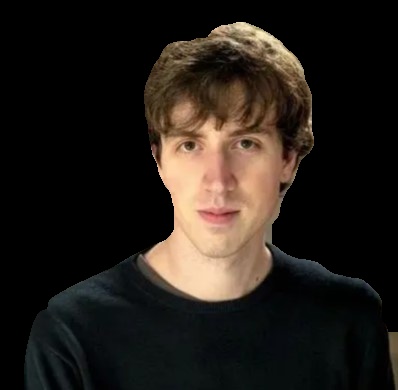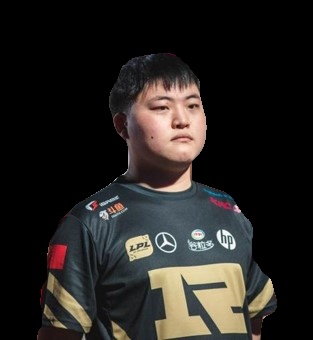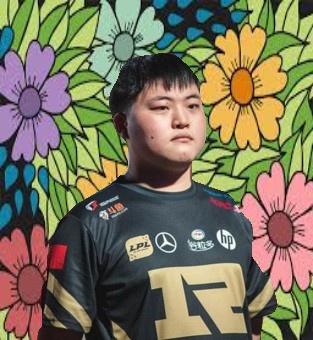数字图像处理 第 3 周作业 ¶
about 481 words 143 lines of code 4 images reading time 4 minutes
1. 处理思路 ¶
源代码路径:./main.py。
使用 OpenCV 库。读取图片后,先将蒙版图片和背景图片调整形状为与原图片相同。对于蒙版图片,先用一个较大的高斯核进行高斯模糊处理,可能有助于将边缘部分空缺处的灰度值提高,从而增大白色区域。
将蒙版图片二值化,设定阈值为 128,高于 128 认为是白色,设置为 1;低于 128 认为是黑色,设置为 0。然后进行形态学处理:先膨胀后腐蚀,有助于填补缺口、平滑边界部分。膨胀和腐蚀函数可以使用自编版本 dilate(), erode(),提供了源图像、卷积核、迭代次数三个参数,也可以直接使用 cv2 库中内置的函数 cv2.dilate(), cv2.erode()。对于膨胀操作,每一个像素点作为卷积核的中心,卷积核范围内的像素中存在白色像素时,就将这个像素点置为白色。对于腐蚀操作,每一个像素点作为卷积核的中心,卷积核范围内的像素中全部为白色像素时,将这个像素点置为白色。处理过后的蒙版与原图像相乘,得到提取出的人物图片。
替换背景时,只需将提取出的人物图片和背景图片去除蒙版的部分相加即可。
经过测试,卷积核大小设定为 (7, 7),迭代次数分别为 3,3 时效果较好。
2. 运行结果 ¶
图片 1:处理过后衣服两侧的小凹陷被填补,但是衣服右侧和脖子右侧也多出了额外的背景部分。
图片 2:衣服左侧的两处凹陷能够填补,但是衣服右侧的大片缺失区域难以填补。
3. 源代码 ¶
见 ./main.py :
Python
import cv2
import numpy as np
def dilate(src, kernel, iterations=1):
"""膨胀函数
Args:
src (np.ndarray): 二值图像
kernel (np.ndarray): 卷积核
iterations (int, optional): 迭代次数
Returns:
np.ndarray: 膨胀后的图像
"""
result = src.copy()
k_h, k_w = kernel.shape
pad_h, pad_w = k_h // 2, k_w // 2
for _ in range(iterations):
padded = np.pad(
result, ((pad_h, pad_h), (pad_w, pad_w)), mode="constant", constant_values=0
)
temp = np.zeros_like(result)
h, w = result.shape
for i in range(h):
for j in range(w):
region = padded[i : i + k_h, j : j + k_w]
if np.any(region[kernel == 1] == 1):
temp[i, j] = 1
else:
temp[i, j] = 0
result = temp.copy()
return result
def erode(src, kernel, iterations=1):
"""腐蚀函数
Args:
src (np.ndarray): 二值图像
kernel (np.ndarray): 卷积核
iterations (int, optional): 迭代次数
Returns:
np.ndarray: 腐蚀后的图像
"""
result = src.copy()
k_h, k_w = kernel.shape
pad_h, pad_w = k_h // 2, k_w // 2
for _ in range(iterations):
padded = np.pad(
result, ((pad_h, pad_h), (pad_w, pad_w)), mode="constant", constant_values=1
)
temp = np.zeros_like(result)
h, w = result.shape
for i in range(h):
for j in range(w):
region = padded[i : i + k_h, j : j + k_w]
if np.all(region[kernel == 1] == 1):
temp[i, j] = 1
else:
temp[i, j] = 0
result = temp.copy()
return result
def main(
image_path,
mask_path,
background_path,
person_path="./person.jpg",
new_image_path="./new_image.jpg",
):
"""主函数
Args:
image_path (str): 原图像路径
mask_path (str): 蒙版路径
background_path (str): 背景图路径
person_path (str, optional): 保存人物图片路径. Defaults to "./person.jpg".
new_image_path (str, optional): 保存新图片路径. Defaults to "./new_image.jpg".
"""
# 读取图片
image = cv2.imread(image_path)
mask = cv2.imread(mask_path, cv2.IMREAD_GRAYSCALE)
background = cv2.imread(background_path)
print(f"read original image: {image_path}, shape: {image.shape}")
print(f"read mask: {mask_path}, shape: {mask.shape}")
print(f"read background: {background_path}, shape: {background.shape}")
# 调整蒙版和背景图形状
mask = cv2.resize(mask, (image.shape[1], image.shape[0]))
mask = cv2.GaussianBlur(mask, (25, 25), 0)
background = cv2.resize(background, (image.shape[1], image.shape[0]))
# 二值化蒙版
binary_mask = (mask > 128).astype(np.uint8)
kernel = np.ones((7, 7), dtype=np.uint8)
# 先膨胀,后腐蚀
dilated_mask = dilate(binary_mask, kernel, iterations=3)
# dilated_mask = cv2.dilate(binary_mask, kernel, iterations=5)
# cv2.imshow("dilated_mask", dilated_mask * 255)
# cv2.waitKey(0)
# cv2.destroyAllWindows()
clean_mask = erode(dilated_mask, kernel, iterations=3)
# clean_mask = cv2.erode(dilated_mask, kernel, iterations=5)
# cv2.imshow("clean_mask", clean_mask * 255)
# cv2.waitKey(0)
# cv2.destroyAllWindows()
# 蒙版转换为3通道
clean_mask_3c = np.stack([clean_mask] * 3, axis=-1)
# 提取人物并替换背景
person = image * clean_mask_3c
new_image = person + background * (1 - clean_mask_3c)
# 保存图片
cv2.imwrite(person_path, person)
cv2.imwrite(new_image_path, new_image)
print(f"save image with only people: {person_path}, shape: {person.shape}")
print(f"save image with new background: {new_image_path}, shape: {new_image.shape}")
if __name__ == "__main__":
image_path = "./img1.jpg"
mask_path = "./mask1.jpg"
background_path = "./background.jpg"
person_path = "./person1.jpg"
new_image_path = "./new_image1.jpg"
main(image_path, mask_path, background_path, person_path, new_image_path)
image_path = "./img2.jpg"
mask_path = "./mask2.jpg"
background_path = "./background.jpg"
person_path = "./person2.jpg"
new_image_path = "./new_image2.jpg"
main(image_path, mask_path, background_path, person_path, new_image_path)



